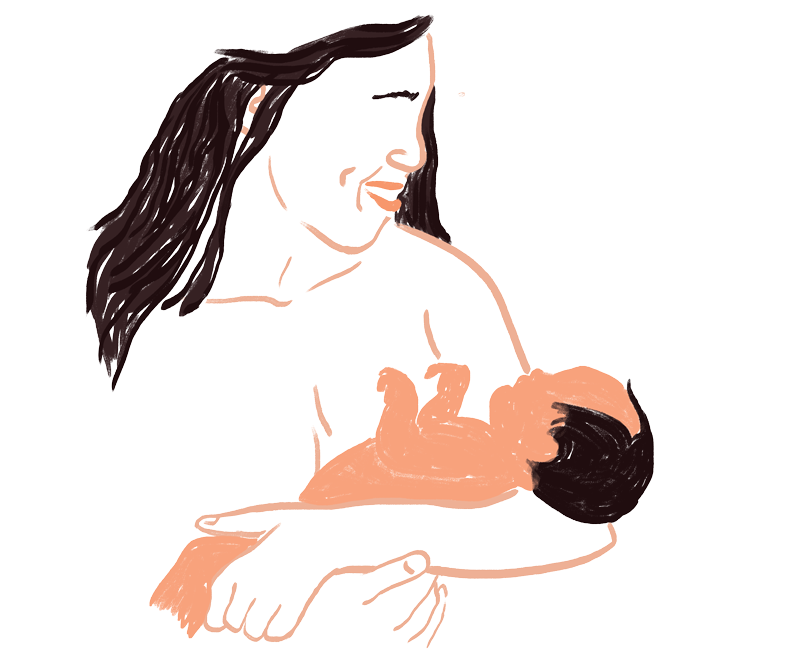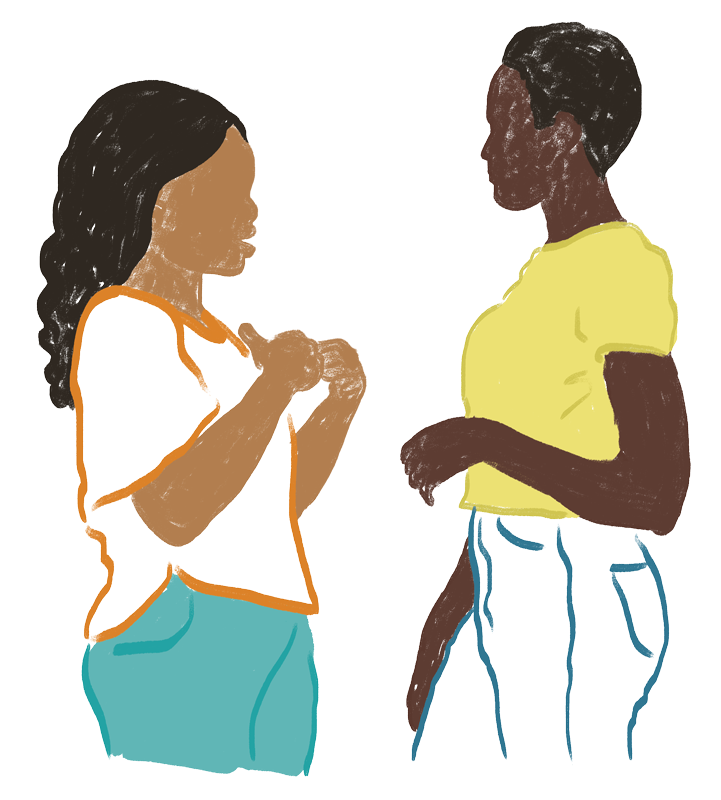Feeding your baby formula
If you decide to feed your baby formula, here are some tips and things to consider.
Where to get formula
In many parts of Canada, there are programs for people with HIV to access free formula. To see if there is a program near you, visit catie.ca/formula. Some areas do not have a formula program specifically for people with HIV, but there may be other programs that can provide formula. If you are unsure where you can get free formula, you can ask a healthcare provider or someone at an HIV organization in your area.
Breast care
If you do not breastfeed, your breasts will probably still produce milk after you give birth. Your breasts may swell, and you might feel pain in your breasts because you are not releasing the milk.
You should not pump your milk. This is because pumping will cause you to produce more milk. Not pumping might be uncomfortable for a few days but there are things you can do to help with this discomfort. You can wear a supportive well-fitting bra, use a cold pack, or take a pain reliever such as ibuprofen.
There is a drug called cabergoline available to help stop your body from producing milk. Talk to a healthcare provider about whether this might be a good option for you.
Bonding with your baby
Some people worry that not breastfeeding will make it harder to bond with their baby. There are lots of ways to bond with your baby besides breastfeeding. Any interaction you have with your baby is an opportunity for bonding. Holding your baby close on your bare skin and making lots of eye contact is a great way to physically bond with your baby. You can do this while feeding your baby with a bottle. Talking to your baby, singing, reading, and playing are all great ways to bond.

Social and cultural pressures to breastfeed
People who decide to formula feed their babies often face a lot of social and cultural pressure to breastfeed. You may feel that people are judging you for your decision not to breastfeed. This pressure and judgment can be upsetting.
You should know that you are not alone. Many people in Canada feed their babies formula for lots of different reasons. Some people do not breastfeed because of a health condition that they have or a medication that they take. Others feed their babies formula because they are not able to breastfeed or for other personal reasons.
You may be worried that people might figure out that you have HIV because you are formula feeding. If you do not want someone to know that you are living with HIV, you may want to provide another reason for why you are not breastfeeding. For example, you could say that your body does not produce enough milk or that your baby prefers bottle feeding.
Feelings about not breastfeeding

Some people who decide to formula feed instead of breastfeeding feel comfortable with their decision. For others it can bring up feelings of sadness, shame, or loss. Some people may worry about whether they are doing the right thing for their baby. These feelings are normal. If you are struggling with your feelings, it might be helpful to talk to other parents who are living with HIV or to get support from a mental health care provider.
